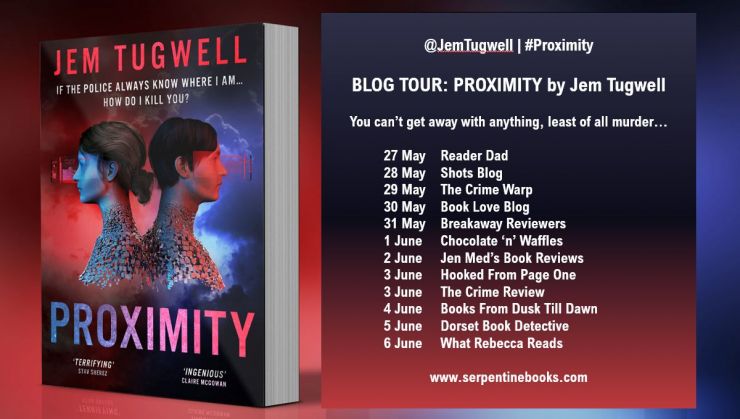It’s my own fault…
In setting Proximity in a world where ‘You can’t get away with anything…least of all murder’ it defined both thecrimes that are possible, and also the characters. When solving a crime is as simple as looking up who was at the scene, the task of being a police detective is really very simple. It’s like having a character in a police procedural novel when police procedure is ‘click a button’.
DI Clive Lussac is one of the main protagonists is Proximity. He is a career police detective with no crimes left to solve. In thinking about how he might feel, it seemed clear that he would be frustrated at his dream job disappearing. To compound this, I liked the idea that he had helped champion the introduction of the technology into policing and inadvertently contributed to own downfall. He did it for the right reasons, but saw the police force downsized. At the beginning of Proximity, Clive has forgotten how to do his job.
To allow the exploration of the impact on the police force, I also wanted Clive to have lived without all the technology for a lot of his life. That meant he had to be older. I wanted the other main protagonists, DC Zoe Jordan to have a different perspective. That meant she had to be young and having grown up with the technology. The different backgrounds and experience of technology provides an interesting dynamic and adds a natural conflict between the two partners. Both see different pros and cons.
When the impossible happens and a body is found, but the killer is untraceable, it’s time for Clive to try rediscover the police officer he used to be and re-sharpen his detective skills. It’s hard to talk too much about the other main characters without giving away too many spoilers, but sometimes peripheral characters can have more impact than their time in the book might suggest. I really liked writing Doris Barclay. A little old lady with a foul mouth was a great way to break a visual stereotype.
To read the full article click here.


